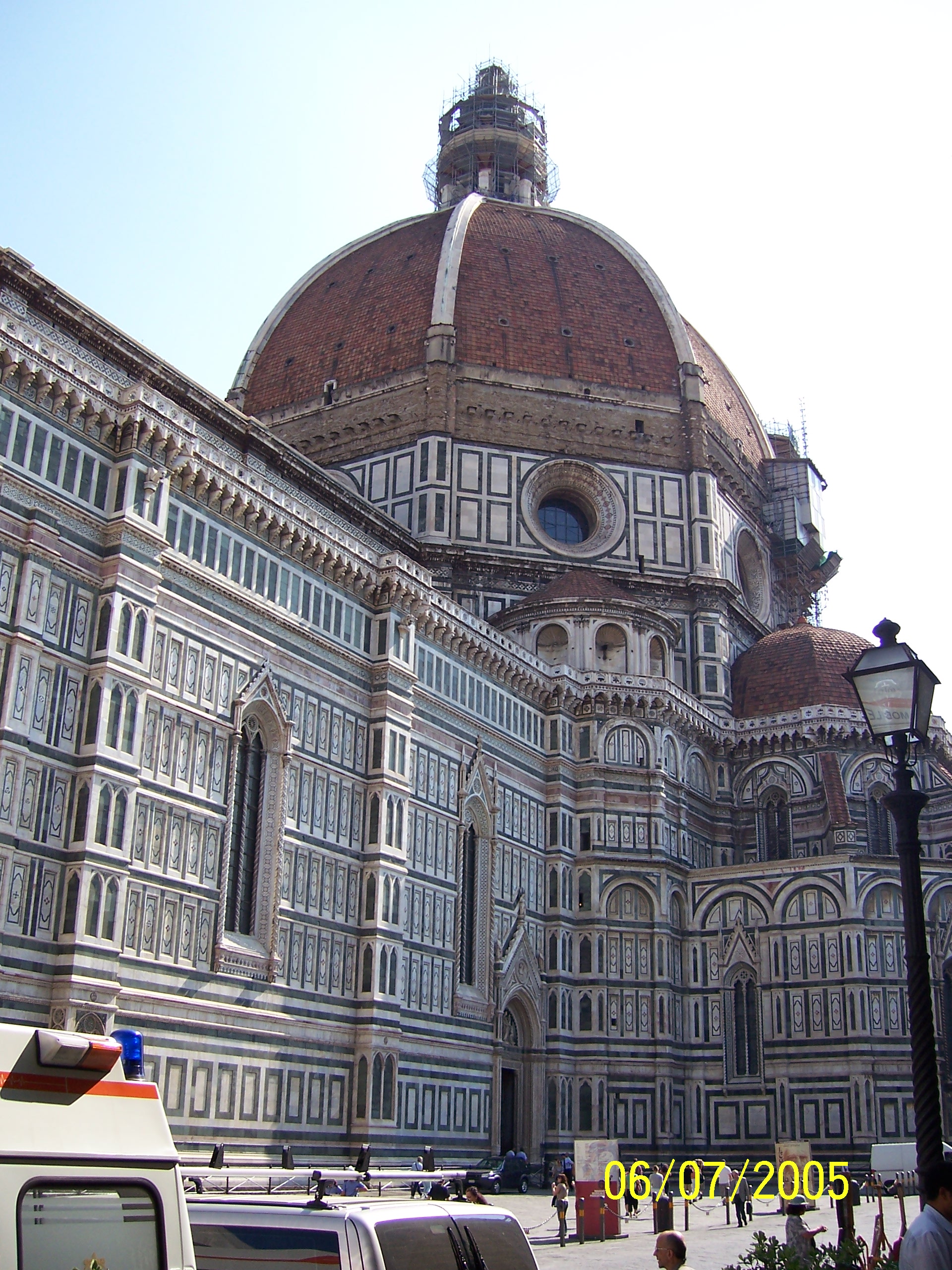 |
| Duomo |
However, I wouldn’t want to leave you with the impression that I’m a starry-eyed europhile who asks why life can’t be one long bout of chianti-sipping under the Tuscan sun or café-conversing on a Paris sidewalk.
My personal finances do not permit me to live that way, and perhaps yours don't either.
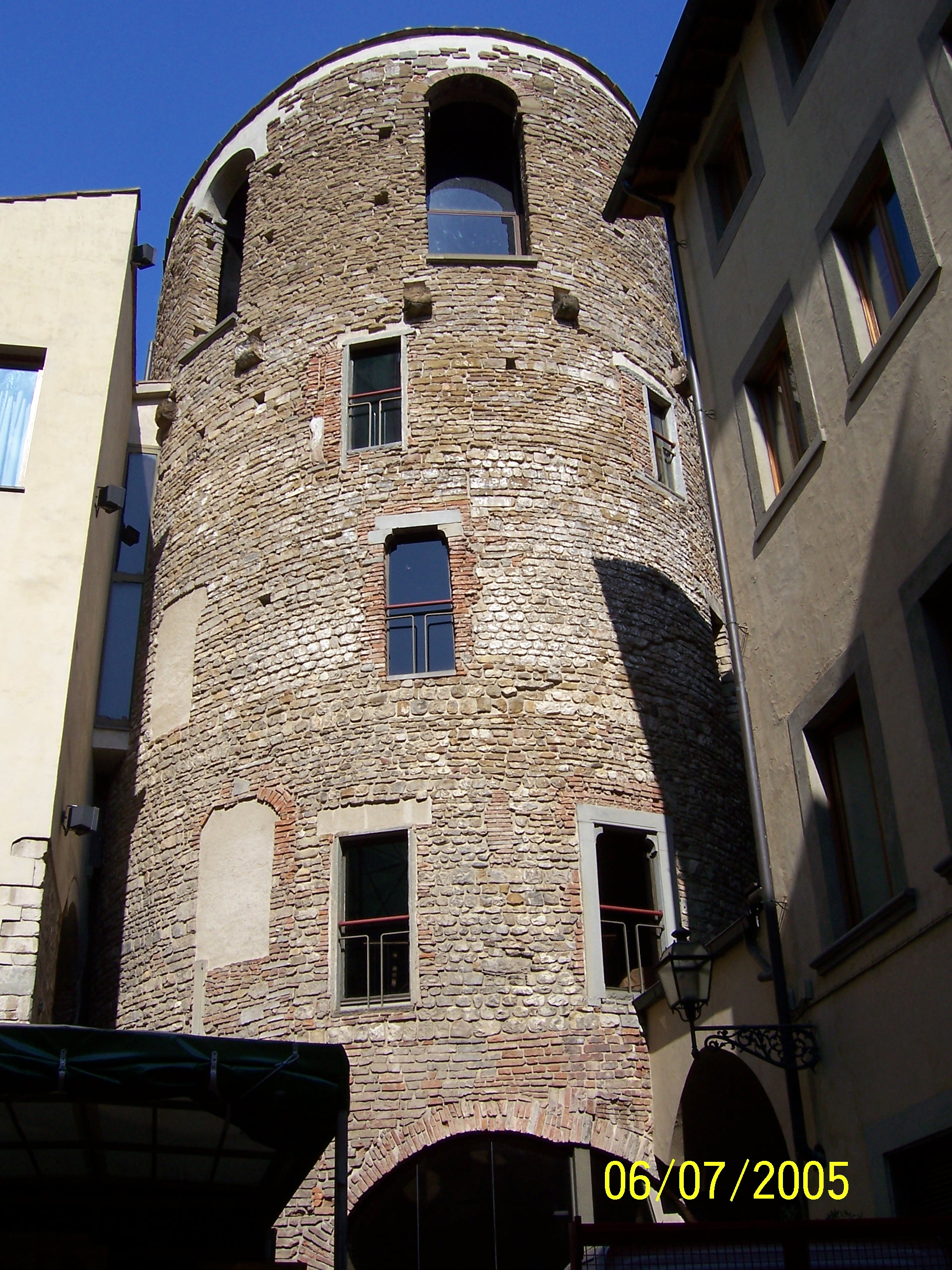 |
| Diverse architecture |
It was only a quarter-mile walk to the Duomo, the large domed cathedral that dominates the Florentine skyline. Through fits and starts the Duomo was completed over the centuries and became the fourth largest cathedral in Europe (behind St. Peter’s in Rome, St. Paul’s in London, and the cathedral in Milan).
The line to the front door moved quickly, and it took less than ten minutes to gain entrance. I didn’t see any enforcement of the posted dress code, which forbade bare shoulders, shorts, dresses above the knee, and bare midriffs; all were welcome in God’s house. The inside walls of the cathedral were largely free of ornamentation, so we spent our time gazing upward at the ceiling of the cupola (dome).
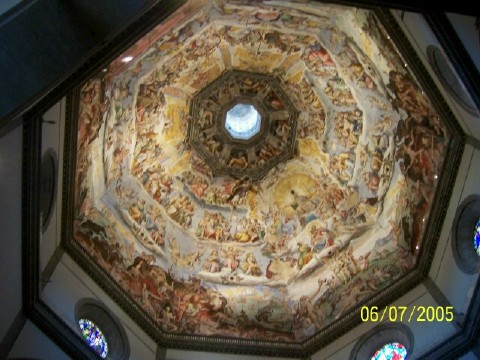
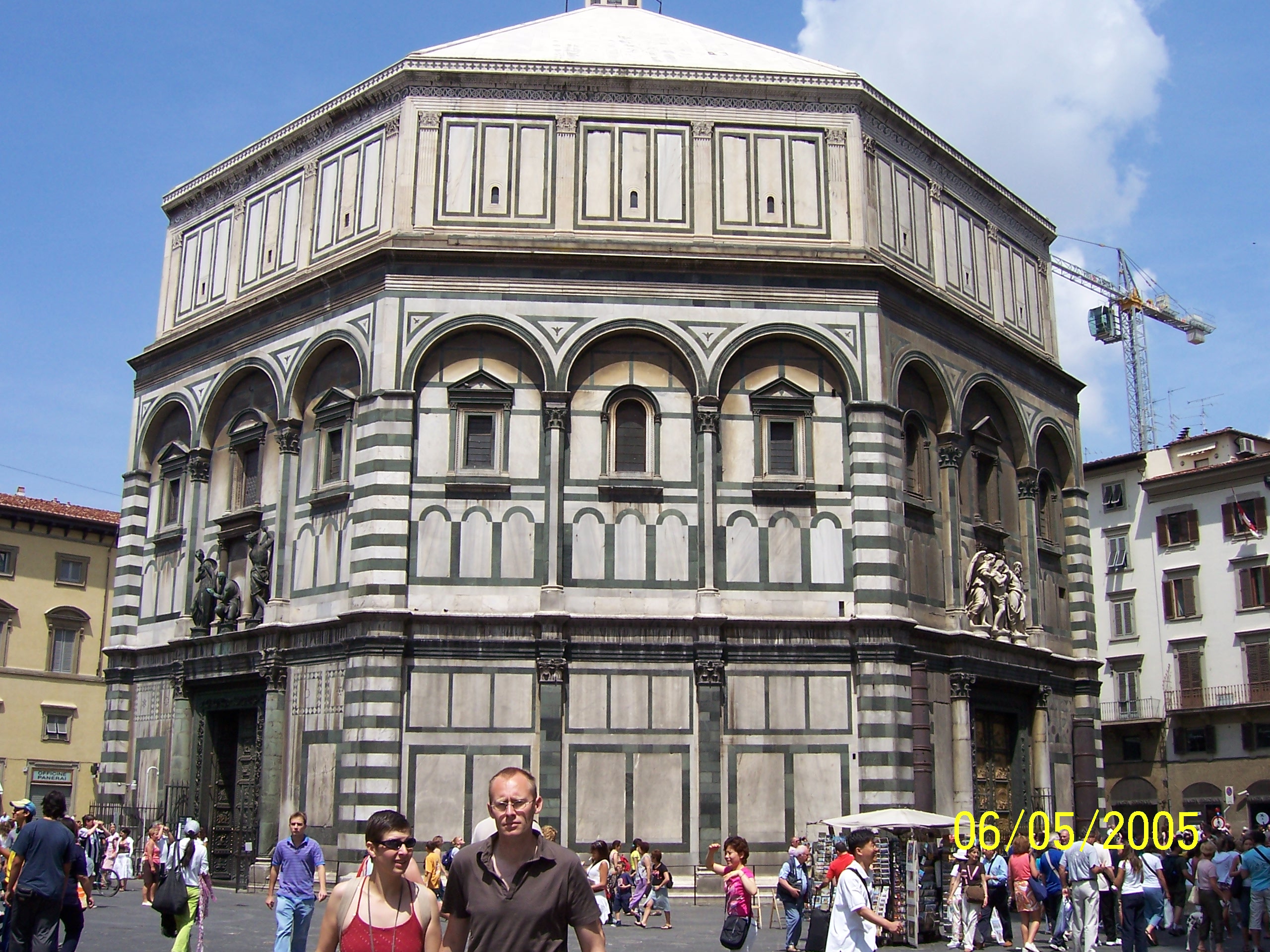 Michelangelo studied the Florentine dome’s use of perspectives before designing his famous ceilings in Rome: painting needs to be adapted to a curved surface if the images were to appear undistorted to the viewers below.
Michelangelo studied the Florentine dome’s use of perspectives before designing his famous ceilings in Rome: painting needs to be adapted to a curved surface if the images were to appear undistorted to the viewers below.We bypassed the Baptistery, which I had visited two days earlier, and the Uffizi Museum, which had a four-hour wait, and strolled to the Ponte Vecchio, the only bridge in Florence that survived World War II.
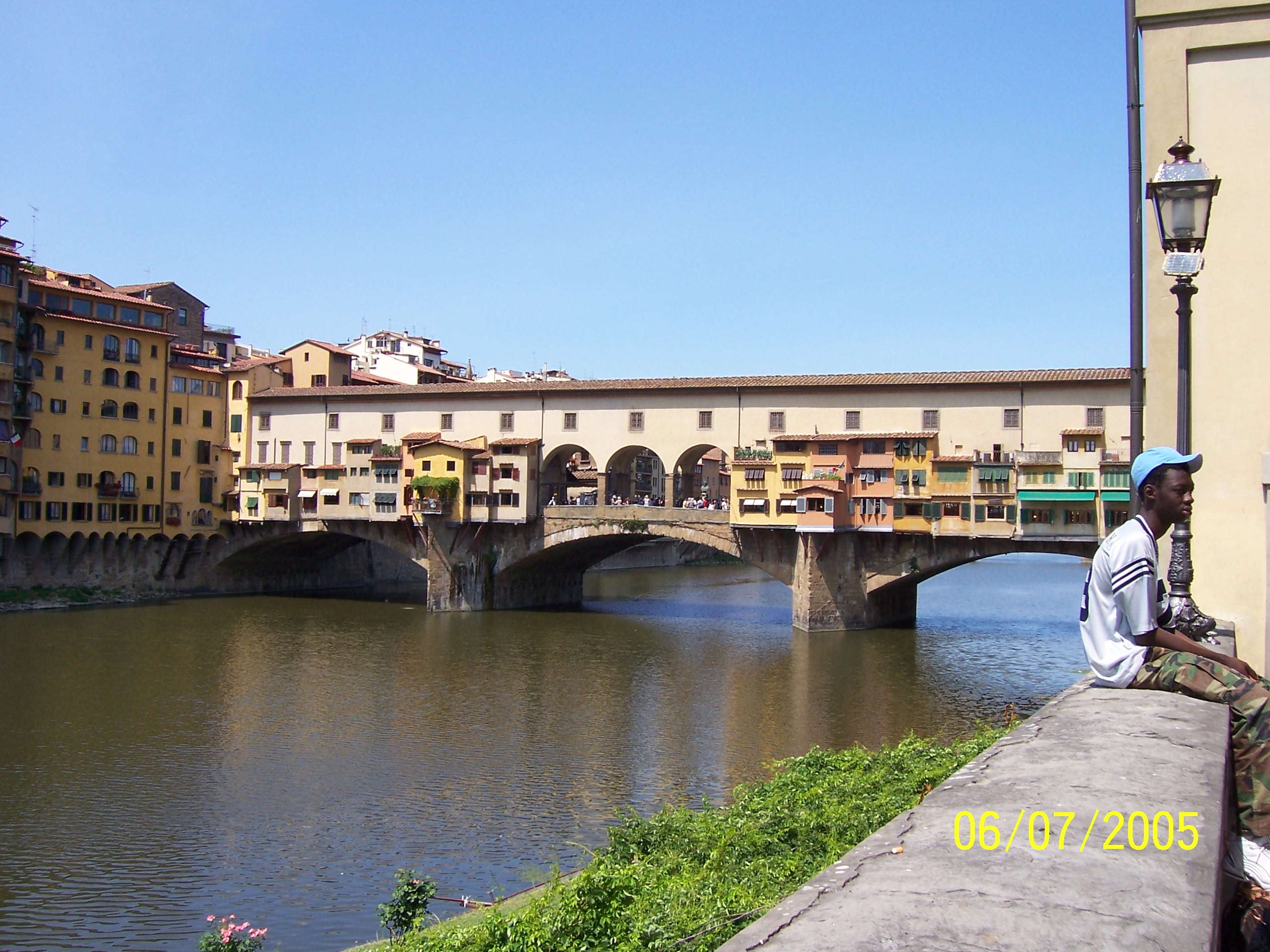
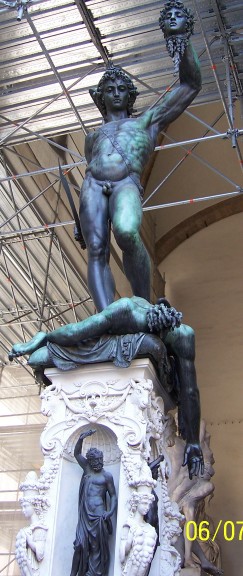 The Ponte Vecchio’s jewelry stores left my wallet lighter on my previous trip to Florence over 20 years ago, and I wasn’t anxious to duplicate that experience. (A colleague’s wife picked up a handbag for me at the designer outlet, so I got points for not returning empty-handed.)
The Ponte Vecchio’s jewelry stores left my wallet lighter on my previous trip to Florence over 20 years ago, and I wasn’t anxious to duplicate that experience. (A colleague’s wife picked up a handbag for me at the designer outlet, so I got points for not returning empty-handed.)We returned to the hotel for lunch. Touring was over, and it was time to begin work on my presentations for the next day’s business meetings. I spent five days but only scratched the surface of a city where events shaped the course of Western civilization. At the turn of the 16th century some of the greatest artists (Michelangelo, Leonardo, Raphael) in human history converged on this small city in Italy. The how and why remains a mystery.
In Florence I could join the other tourists at the Loggia dei Lanzi and gawk at the open-air sculptures, including Cellini's bronze of Perseus holding the head of Medusa, but my understanding, I suspect, will always be elusive, no matter how many times I return.
He who has seen one cathedral ten times has seen something; he who has seen ten cathedrals once has seen but little; and he who has spent half an hour in each of a hundred cathedrals has seen nothing at all.
-Sinclair Lewis
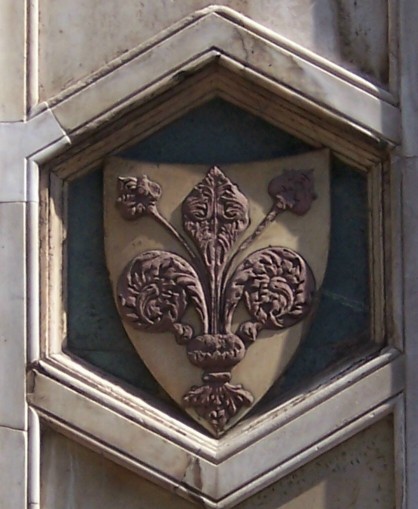
On one of the Duomo's exterior panels was carved the Fleur-de-lys, the symbol of Florence and a recurring theme in the best-selling thriller the Da Vinci Code. © 2005 Stephen Yuen
No comments:
Post a Comment